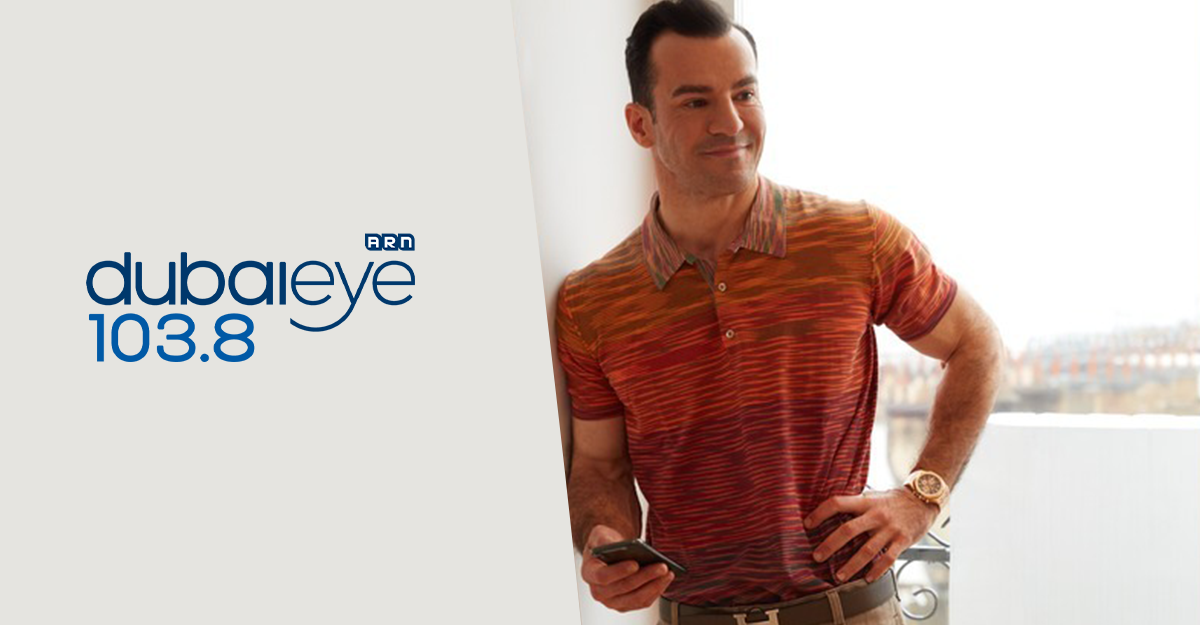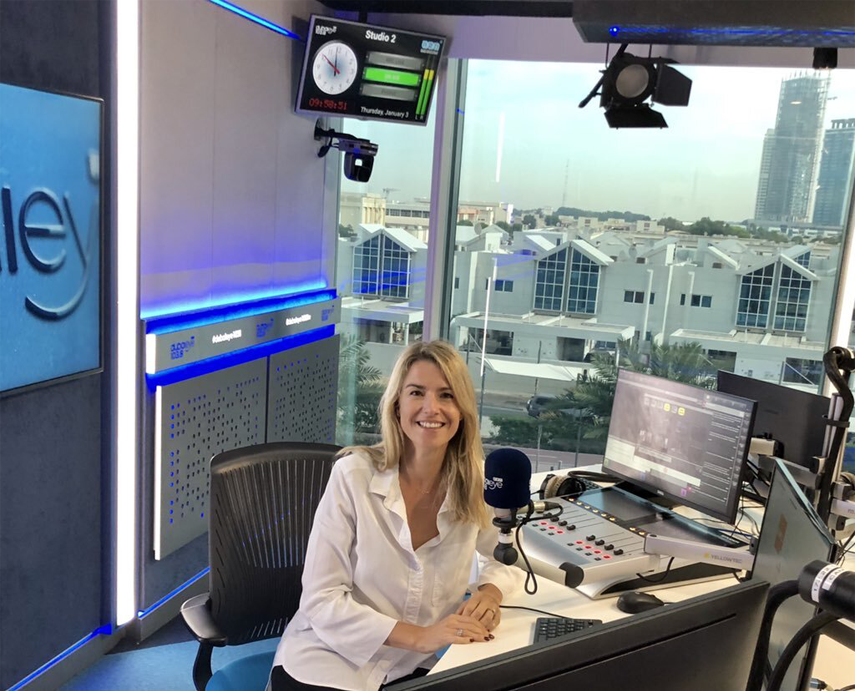

Written by Rami Cassis
16 Oct
Rami Cassis, founder of Parabellum Investments recently gave a live interview on Dubai Eye, Dubai’s only news, talk and sport radio station. Rami explains to the afternoon show’s presenter Georgia Tolley how working in the Australian desert gave him the experience to go on his own and how he paid $15,000 for his first business – a print-scanning business based in Doncaster, northern England.
There isn’t a family in the UAE that isn’t having to juggle their money right now. Nearly everyone I know has taken some sort of pay cut and the cost of living hasn’t really come down. But how can we make the best of the cash that we do have coming in? Let’s chat to someone who has made making money his entire career, Rami Cassis, the founder and CEO of Parabellum investments. He specialises in helping low to mid-market companies grow their profits. He’s got a proven success of growing companies ranging in size from $5 million, all the way up to 100 and $50 million in revenue offices in London, Frankfurt, Dubai, of course Singapore and Sydney. And he previously worked for big corporations holding positions including Chairman CEO and Operations Director. Rami holds degrees in engineering, aerospace, and pure and applied mathematics both gained at the University of New South Wales in Australia.
So, studying mathematics and aerospace engineering – how come you’re not designing spaceships right now?
I was born in Cairo to Egyptian Lebanese parents and they had decided what my career options were going to be very early on – they gave me the options of medicine or engineering. I couldn’t really stand the thought of surgery, so I studied engineering, in large part to appease the requirements of my parents. Having studied engineering and then working in the area for a few years, I quickly focused on how I was going to get out of it. So, I started in oil and gas and worked as an engineer for an Australian company called Schlumberger. It was a fantastic experience and gave me the background for my now career choice of acquiring and developing midmarket firms.
How much did you get paid for your first job? Was it a decent salary?
I worked my first stint in the Australian desert. I can’t say it was that much fun. When you work in the oil and gas sector, you end up working all the hours God sends, under very difficult conditions. I think my first salary all those years ago, was probably about $80,000, which is a lot of money for a graduate. But I was working 14 weeks at a time and had two weeks off. There wasn’t a work life balance, it was just work. But it was still a great grounding – because your personality is formed through adversity.
Was your family well off? Or did you have enough money to get by?
We never really grew up with very much money. My parents always taught me the importance of hard work – and the only legacy they said they could give me, was instill some sense of hard work and to try and get a decent education. We moved around a lot. I went to about nine schools while I was growing up across Egypt, France and Australia. I was 14 when we moved to Sydney and I couldn’t speak a word of English. The circumstances teach you to adapt. When you’re the outsider, it forces you to become more resilient, more disciplined and really try to focus on what it is you want to do.
You did your job in engineering in the oil and gas field for nine years. And then you must have made the move into finance, I presume?
After nine years or so of working all over the globe, I moved to London, worked for KPMG for a couple of years and then for a large IT services firm for four years. But I still hadn’t worked out what it is that I wanted to do. I had worked out, though, that I no longer wanted to be CEO of somebody else’s company.
And so, my first business was a 15-person firm, scanning documents in the north of England. I applied the experience and the skills that I had learned for all those years as an employee, to turn that business around. There are a lot of these small businesses out there, where you feel you have the confidence and the skill to develop and grow them. It’s the kind of opportunity that I’ve taken based on my own life experiences.
What is your approach towards savings? Do you, as I’ve heard recommended in the past, save half of your income?
I think that could be an unrealistically high number, depending on people’s income and outgoings, and whether you have a family to support and so on. If you can save half of your income then great, but I think that what is perhaps more important than saving, is working out what you want to do with your life. I hate dispensing advice but if I had to, my overwhelming advice would be self-awareness is really important. And I’d probably encourage people to try and set up their own business. Everybody has a talent and a skill. It’s finding something that really gets you up in the morning. So, it doesn’t feel like work.
Tell me, what is the one thing that you would never buy?
My initial answer was probably going to be a pension plan. The money that I put into a pension is money that I’m not able to put into an opportunity into something else. So, people are always advising you to put money aside for pensions because it might be tax-efficient or its savings you may well need for a rainy day. The converse of that, is it’s also money that you’re not able to use for other opportunities. And I would urge people to back themselves to find what it is that they want to do and go for it!
Okay, so if I gave you 1 million AED to invest or to spend, what would you do with it?
I’d do a deal. I’d buy another business.
You wouldn’t buy any stuff other than businesses like, cars, suits?
No. I spend a lot on travelling because I’m based in Dubai, but I spend a lot of time in London and in France. I also spend a lot on sports. It’s a bit of a glib statement, but I want to live to be 100. And looking after my health is the activity that I spend most of my time and money on. Any other money that I have goes into Parabellum Investments.
Do you believe that there are some people who just have innate ability to make money?
I don’t believe that at all. A lot depends on your upbringing and the attitudes that is instilled in you by your parents. I was 40 by the time I worked out what I wanted to do, some people work it out earlier, some people never work it out. And some people work it out later in life. But I don’t believe there is an innate ability for one to be better than another at managing money.
Where would you put your money now – property, cash, stocks?
Right now, you’d want half of your money in cash because there are likely to be some tremendous opportunities over the course of the next 12 to 18 months. And probably the balance split between equities and property. But that’s a very broad summary because I’m not a big fan of equities given you have absolutely no control about where they go. I prefer to put money in investments where I have some control because if I end up losing money, then I only have myself to blame. There’s nothing worse than losing money and blaming it on someone else.
And final question, which sectors are you sharking at the moment?
Right now, if one were to look at which sectors to look at, I would go completely counter cyclical. So, typically automotive, then potentially retail but online retail. If there was ever a time when the automotive sector was going to be at its lowest – it’s now. Retail has suffered and e-commerce online retail is going to be an interesting sector over the next two years I feel.
Amazing. Rami, thank you so much for answering my incredibly intrusive questions. I really appreciate it.
